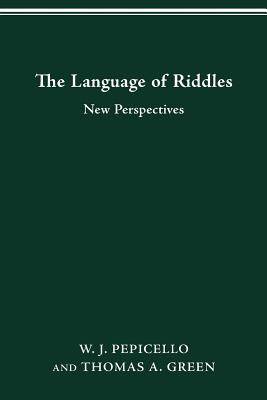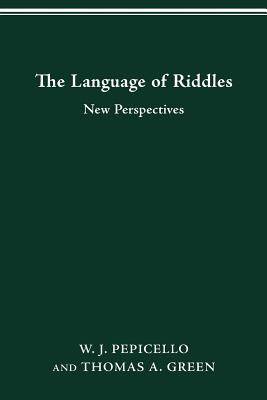
- Retrait gratuit dans votre magasin Club
- 7.000.000 titres dans notre catalogue
- Payer en toute sécurité
- Toujours un magasin près de chez vous
- Retrait gratuit dans votre magasin Club
- 7.000.0000 titres dans notre catalogue
- Payer en toute sécurité
- Toujours un magasin près de chez vous
26,45 €
+ 52 points
Description
For the folklorists and linguists who are serious students of what has been designated "a minor genre," the riddle is, in fact, a complex linguistic and aesthetic structure that, when subjected to systematic and scientific study, reveals a great deal about the major human systems-such as language, culture, and art-with which it is inextricably bound up. Riddles conform to a model of communication made up of a code and an encoded message that is first transmitted and then decoded. As what Professors Pepicello and Green term "a licensed artful communication," the riddle employs quite ordinary language in conventional ways to satisfy the demands placed upon it as the art form that it is. And as an art form, the riddle is subject to constraints that are semiotic (some primary graphic, aural, or other code), aesthetic (artistic conventions that are also semiotic), and grammatical (linguistic restrictions). The riddle operates, therefore, within a cultural framework that is entirely predetermined, and represents what Pepicello and Green designate "a conventional performance." The signified of riddles is not easily defined; and indeed it is possible-perhaps even necessary-to distinguish several signata. All riddles, the authors point out, whether they are based on grammatical or metaphorical ambiguity or represent one of the transitional types they identify, are solvable within the confines of the culture in which they have been constructed and in which they are posed. But the signified of a riddle is not its answer. Nor is it an object or a situation. Rather it is the code employed by the riddle itself. Riddles are therefore metalinguistic: ways of using language to deal with language-ways of using language to gain mastery over language. W. J. Pepicello is director of humanities and social sciences in the School of Allied Health Professions at Hahnemann University in Philadelphia. Thomas A. Green is associate professor of English at Texas A&M University.
Spécifications
Parties prenantes
- Auteur(s) :
- Editeur:
Contenu
- Nombre de pages :
- 176
- Langue:
- Anglais
Caractéristiques
- EAN:
- 9780814253458
- Date de parution :
- 26-01-16
- Format:
- Livre broché
- Format numérique:
- Trade paperback (VS)
- Dimensions :
- 152 mm x 229 mm
- Poids :
- 267 g

Les avis
Nous publions uniquement les avis qui respectent les conditions requises. Consultez nos conditions pour les avis.






